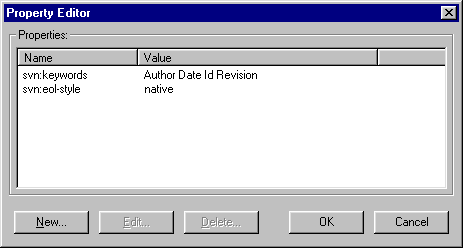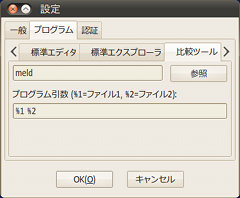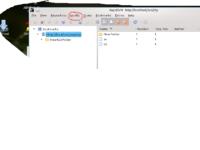

- #Rapidsvn standard editor install
- #Rapidsvn standard editor password
- #Rapidsvn standard editor download
- #Rapidsvn standard editor mac
When I close and open Netbeans the project that I was just editing from the repository does not appear in the projects panel off to the left. In the same vein, it appears that it does not save any of my changes. However, whenever I make changes and then test and run my program it appears to always run the version that was loaded to the repository.

So, I now can look at all my files and edit them. Here are the details: : .SVNClientInterfaceĪt $1.run(URLClassLoader.java:217)Īt (Native Method)Īt (URLClassLoader.java:205)Īt (ClassLoader.java:321)Īt $AppClassLoader.loadClass(Launcher.java:294)Īt (ClassLoader.java:266) However, the system should continue working without further problems. When I load NetBeans I get a class not found exception saying: A exception has occurred. Now, with Ubuntu and RapidSVN (a GUI svn client) I checked out my repository to the NetBeansProjects Directory. The above was all done with a windows pc. I imported my Netbeans project to an online repository. The list of files will now be updated.I had a Netbeans project with all the directory structure and so forth. Check in your changes by clicking on the “Commit Change” button.The file will still be listed until you check in your changes. Highlight the file you want to delete and click on the “Delete Selected” icon.On the right side – the files for that bookmarked repository will appear. Within RapidSVN – Click on the bookmark you want to work with on the left side of the window.If you add files, do not check them in, and want to delete them – you can use the OS to delete the files. *** You can only delete files that have already been checked in. You might see a folder with a name of “.” do not worry about it, remove it, or try to delete it. If you delete the files with your OS – you will get errors which will stop all future edits until it is remedied. If you want to delete a file from the repository – you must use SVN. *** Regardless of what happens – DO NOT DELETE CHECKED IN FILES USING YOUR OPERATING SYSTEM’ DELETE OPTIONS (move to trash, etc). Check those new files in by clicking on the “Commit Change” button.You will be prompted for a comment (explanation).Highlight the new files you added and click on the “Add Selected” button.You will see all your files – old and new. Add the new files/folders to your local (on your desktop) copy of the files.


(Ex: I changed the CSS so that the navigation now works in IE 6)
#Rapidsvn standard editor password
You will be prompted for a user name and password – those are for the repository.Do not worry about “Peg Revision” – Click the “Ok” button.Use the latest revision (unless you have a reason to choose something else).Choose where you want these files on your to be downloaded to on your computer (destination directory).Enter in the URL of the repository where the files are currently located.Go to the “Repository” menu and select “checkout”. Check out the files that you want to edit.
#Rapidsvn standard editor install
#Rapidsvn standard editor download
Download the RapidSVN you will use to check in and check out files at.
#Rapidsvn standard editor mac
For this documentation, I have chosen to write about RapidSVN because it runs on both Mac and PC. While I use the command line for this – there are some GUI applications that make it easy for people to manage their files using subversion. If you are a web or application developer, there will come a time (hopefully) that you will need to use subversion for your projects.


 0 kommentar(er)
0 kommentar(er)
